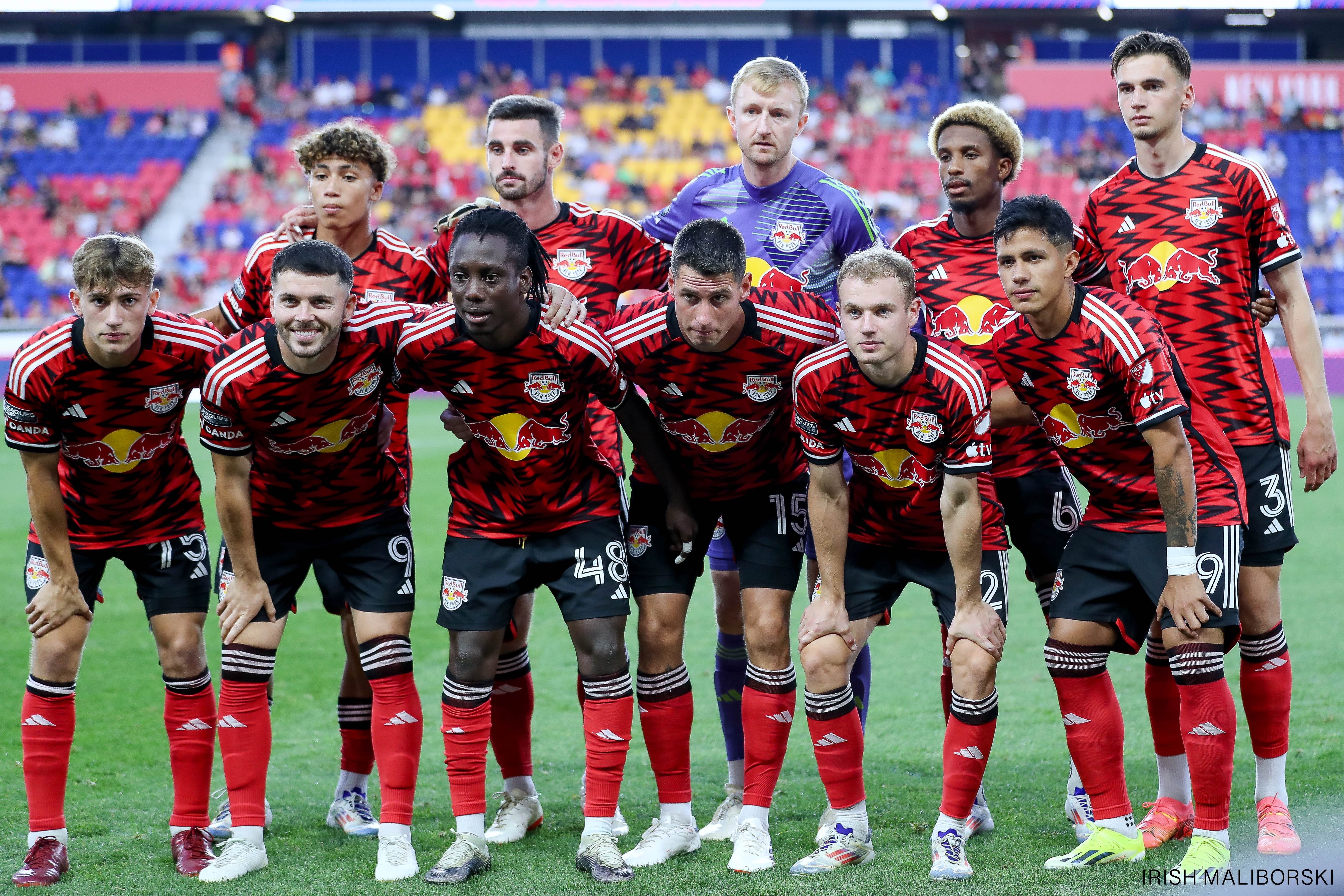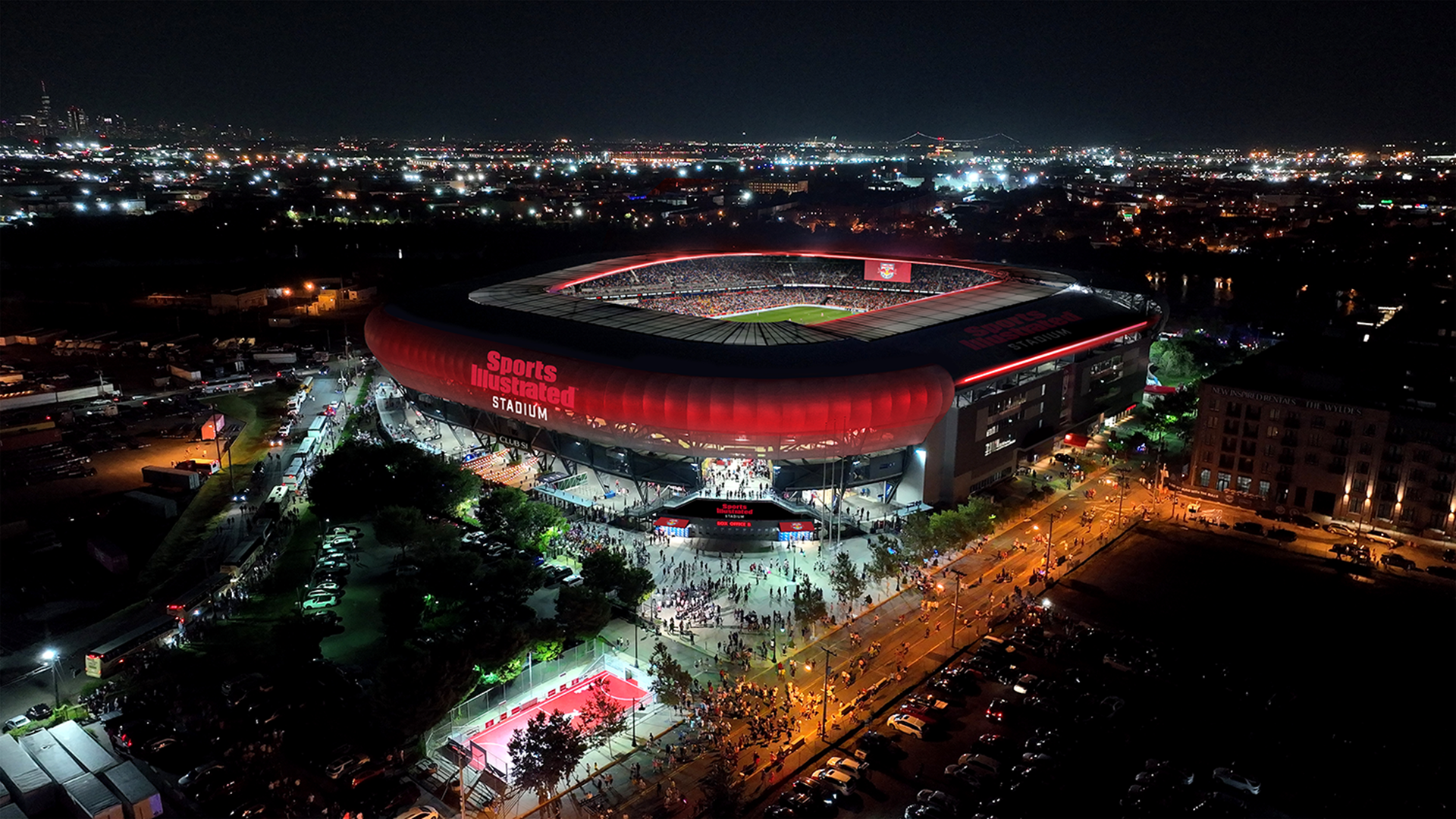MLS
New York Red Bulls: Energizing American Soccer

New York Red Bulls: Energizing American Soccer
New York Red Bulls is one of Major League Soccer’s most recognizable franchises, combining a global football philosophy with deep roots in the American game. Originally founded as the MetroStars in 1995, the team began competing in MLS’s inaugural 1996 season at Giants Stadium in East Rutherford, New Jersey. As one of the league’s first ten franchises, the MetroStars helped lay the foundation for professional soccer in the United States, bringing top-level football to a region historically passionate about youth and collegiate soccer but underserved by professional clubs.
The MetroStars quickly became known for high-profile signings, blending international stars with local talent. Players like Lothar Matthäus, Roberto Donadoni, and U.S. internationals such as Tab Ramos and Tony Meola brought credibility and excitement. However, consistent success was hard to come by, and the team often struggled to translate star power into trophies.
In 2006, Austrian energy drink giant Red Bull GmbH purchased the franchise, rebranding it as the New York Red Bulls. This acquisition marked a major turning point, introducing global resources, a tactical philosophy emphasizing high pressing and rapid transitions, and links to the Red Bull football network that includes RB Leipzig in Germany and Red Bull Salzburg in Austria. The club adopted a forward-thinking approach focused on youth development, analytical scouting, and sustainability while maintaining a high competitive standard in MLS.
Trivia: The MetroStars name lasted a decade, and some long-time fans still fondly recall the early 1996 season, when the team played its first-ever MLS match against the San Jose Clash.
The team’s identity is reinforced by its stadium culture and supporters. Fan groups like the Empire Supporters Club, Viking Army, and Torcida 96 have created one of the league’s most electric atmospheres. The South Ward at Red Bull Arena is particularly renowned for organized chants, banners, and tifos that inspire the team while intimidating visiting squads. This passionate support, combined with the team’s international connections, gives the Red Bulls a unique presence in MLS.
Over the years, the Red Bulls have developed a reputation for cultivating talent and competitive squads. The club has won three Supporters’ Shields (2013, 2015, 2018), awarded to the team with the best regular-season record, underscoring its consistency. Despite these achievements, the MLS Cup has remained elusive, a source of motivation and frustration for fans alike. Trivia: Goalkeeper Luis Robles played 183 consecutive matches from 2010–2016, earning the nickname “Ironman” for his remarkable durability and consistency.
The arrival of Thierry Henry in 2010 marked a turning point in both global recognition and on-field performance. Henry’s 51 goals in 122 appearances helped elevate the club’s status internationally and provided mentorship to younger players. Under Red Bull ownership, the team has steadily embraced a philosophy of tactical discipline, youth promotion, and measured investment in marquee talent, positioning itself as a cornerstone of MLS.
Rivalries
Rivalries define the New York Red Bulls’ competitive narrative. The Hudson River Derby against New York City FC is the most prominent, pitting New Jersey pride against Manhattan identity. Since NYCFC’s formation in 2015, the derby has become one of MLS’s most intense fixtures, drawing large crowds and generating national attention. Matches between the teams often feature dramatic finishes, high stakes, and unforgettable moments. Trivia: In 2016, the Red Bulls achieved a historic 7–0 victory over NYCFC, still the largest margin in Hudson River Derby history.
Another historic rivalry exists with D.C. United, dating back to MLS’s early years. Encounters with United have produced memorable playoff clashes and high-stakes regular-season matches, reinforcing the Red Bulls’ reputation as a team that thrives under pressure. Rivalries with Philadelphia Union and New England Revolution also provide intense competition, fueled by geographic proximity, playoff encounters, and the drive for conference dominance.
Supporters’ culture is central to these rivalries. Fans from the South Ward coordinate chants, banners, and coordinated displays that transform matches into vivid spectacles. This energy often elevates the team’s performance while enhancing the atmosphere for everyone in the stadium.
Trivia: The South Ward supporters’ section has become a template for MLS fan culture, drawing inspiration from European supporter traditions, including German-style tifo displays and drumlines.
New York Red Bulls: Ownership
New York Red Bulls is owned by Red Bull GmbH, which has shaped the team into one of the most structured and globally connected franchises in MLS. Ownership has emphasized sustainability, youth development, and tactical philosophy rather than relying solely on marquee signings. This approach has helped produce a steady stream of talent capable of performing in both MLS and European leagues.
The Red Bulls Academy is central to the club’s identity, producing players such as Tyler Adams, Matt Miazga, and Aaron Long. These graduates illustrate the team’s commitment to nurturing young talent and providing pathways to international success. Trivia: Tyler Adams’ 2019 transfer to RB Leipzig reportedly set a record for the highest-profile MLS homegrown player transfer at the time, highlighting the club’s global impact.
Red Bull ownership has also integrated the team into the company’s global football network. This connection allows for tactical experimentation, player loans, and knowledge sharing with sister clubs in Europe and South America. The club’s consistent competitiveness, despite not winning the MLS Cup, demonstrates the effectiveness of this long-term, philosophy-driven approach.
Trivia: Despite three Supporters’ Shields, the Red Bulls have never won the MLS Cup, a fact that both motivates the club and creates one of MLS’s most compelling narratives.

Watch New York Red Bulls
Red Bull Arena in Harrison, New Jersey, opened in 2010 and is widely regarded as one of MLS’s premier soccer-specific stadiums. Seating approximately 25,000, it provides excellent sightlines, modern amenities, and an intimate atmosphere that brings fans close to the action. Trivia: The inaugural match at Red Bull Arena was a friendly against Santos of Brazil, featuring a 17-year-old Neymar, with the Red Bulls winning 3–1.
The South Ward, home to the Empire Supporters Club and Viking Army, generates some of the loudest and most organized fan support in MLS. Coordinated chants, banners, and tifos transform matchdays into highly immersive experiences, inspiring players and intimidating opponents. The stadium also hosts U.S. national team matches, international friendlies, concerts, and community events, reinforcing its status as a cultural hub for soccer in the New York metropolitan area.
Trivia: Red Bull Arena’s design, with steep seating and a canopy, amplifies crowd noise, making it one of the most intimidating stadiums in the league for visiting teams.
New York Red Bulls: This Season
The 2025 season sees the Red Bulls blending youth and experience under head coach Sandro Schwarz. The squad features academy graduates, international signings, and established MLS players, emphasizing high-energy pressing, disciplined defense, and dynamic transitions.
Key players include midfielder Daniel Edelman, whose vision and work rate are crucial to the team’s structure, and attacker Cameron Harper, who adds pace and creativity in the final third. Goalkeeper Carlos Coronel anchors the defense, combining shot-stopping with command of the backline. The team’s tactical flexibility allows adaptation to different opponents while maintaining the club’s trademark pressing philosophy.
Playoff contention in the Eastern Conference remains the primary goal. The Red Bulls aim to translate regular-season consistency into MLS Cup success, a challenge they have historically struggled to achieve.
Trivia: The Red Bulls’ only MLS Cup final appearance was in 2008, when they lost to Columbus Crew 3–1, reinforcing the league-wide narrative of the club as perennial contenders seeking ultimate glory.
New York Red Bulls: What to Follow
Several storylines define the Red Bulls’ trajectory. The academy and youth programs remain a critical component, producing homegrown talent capable of competing at the highest levels. The Hudson River Derby continues to be a marquee fixture, blending competitive significance with cultural pride.
The integration into Red Bull’s global network provides scouting advantages, tactical insights, and player development opportunities that few MLS clubs enjoy. Competitive ambitions remain centered on capturing the elusive MLS Cup, securing playoff spots, and asserting dominance in regional rivalries.
Supporters’ culture will continue to define the club’s identity. The South Ward ensures that each home game is a vivid spectacle, with coordinated chants, tifos, and fan engagement that amplify both the team’s energy and MLS’s visibility.
Trivia: The Red Bulls are one of the few MLS teams with a global corporate network influencing operations, coaching, and player development. Despite regular-season success and multiple Supporters’ Shields, the club’s ultimate prize—the MLS Cup—remains unclaimed, making each season a test of ambition, culture, and resilience.
